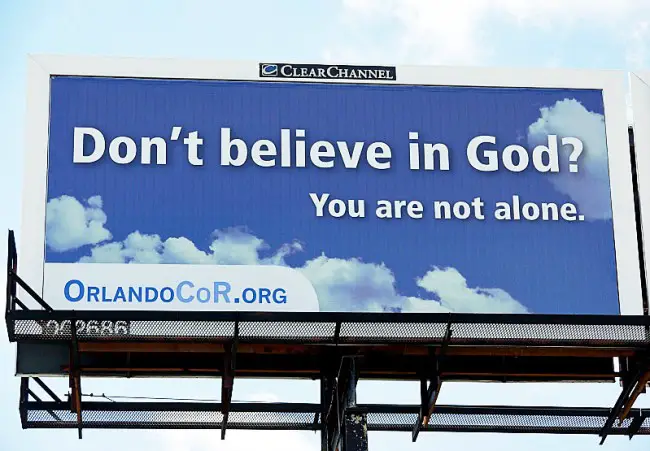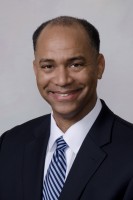
A three-judge panel of the 11th U.S. Circuit Court of Appeals on Tuesday upheld the Lakeland City Commission’s custom of opening bi-monthly meetings with a prayer, even as the prayer has been predominantly and explicitly Christian. The court justified its decision by relying on Lakeland’s recent willingness to broaden its invitations to most local denominations, as well as on a U.S. Supreme Court precedent that recognized in 1983 that “the practice of opening legislative sessions with prayer has become part of the fabric of our society.”
“The selection procedures of the invocational speakers invited to deliver an invocation at Lakeland City Commission’s meetings pursuant to policies and practices initiated informally in March 2010, which were codified with the passage of Resolution 4848 in August 2010, do not support the AOF’s contention that Lakeland attempted to exploit the prayer opportunity to proselytize or advance or disparage any one faith or belief,” the court ruled, referring to the lawsuit by Atheists of Florida. “Nor do those policies and practices have the effect of affiliating the Lakeland City Commission with any discrete faith or belief.”
The decision sidestepped two key issues, however. It declared “moot” Lakeland’s pre-2010 custom of entertaining exclusively Protestant invocations. And it simply chose not to address a central part of Atheists of Florida’s lawsuit against the city: that even after the city formalized its prayer custom with a more open-minded resolution, it “expressly excluded non-religious or secular speakers, and required the invocations to be religious.” As such, the city’s resolution “categorically excluded speakers who are not members of a ‘clergy’ which operates to exclude not only the non-religious but also any religion that do not have ‘clergy.’”
The court declared Lakeland’s pre-2010 customs moot because, it ruled, the city corrected whatever it may have done improperly. But by not addressing the city’s improprieties (or even analyzing whether such improprieties existed), the court left a door wide open for any other government to cross the line into the impermissible, or to remain there by habit, as long as it does not face litigation. And by not addressing the issue of non-clergy, non-religious invocations, the court implicitly closed the door on all but state-recognized religious organizations.
All of Florida falls under the 11th Circuit’s jurisdiction. The unanimous court of appeals’ decision, written by Judge Arthur Alarcon—an 88-year-old Californian appointed to that state’s 9th Circuit Court of Appeals by Jimmy Carter and serving on the 11th “by designation”—is especially relevant to local governments. The Bunnell City Commission in the last two years has more assertively made a point of starting its meetings with a prayer. The prayer is part of the meeting’s agenda, and has often been delivered by a city commissioner. The city has no formal policy on who or how the prayers are offered. The city has also sponsored and coordinated (by way of a city staffer) a “day of prayer,” inviting many members of the local clergy, politicians and members of the public to a ceremony that takes place in a city park behind its old city hall. The next such day is scheduled for May 2.
The 11th circuit’s decision does not address such days of prayer, being narrowly focused on the Lakeland case, in a county with more recent history of chafing up against church-state walls: the Polk County Commission in 2001 formally approved the display of a Ten Commandments monument in its administration building’s lobby, though the $150,000, 6,000-pound granite block sidestepped a legal challenge by including numerous other historical and conmstitutional engravings, such as the Florida Constitution, the Declaration of Independence, the Bill of Rights, bits of code from emperor Justinian and Hammurabi Code, an excerpt from the Federalist Papers and quotes from several founders.
The Lakeland City Commission’s prayers have been and continue to be distinctly less inclusive. In June 2010, Pastor Don Steiner, a member of Wings of Eagles, a Lakeland-based missionary organization that makes proselytizing the Christian gospel—and converting non-Christians—part of its mission, delivered a prayer that lasted five minutes. Steiner said “it is the responsibility of the citizens of Lakeland and its leadership to seek the face of God Almighty, . . . looking to Jesus to fulfill the destiny of this great central Florida city by moving in our churches, parishes and the individual lives of its citizens.” The invocation, once available on the city’s video archives, no longer is. But it is part of a long Lakeland tradition.
Since 1951—as long as minutes have been documented—the Lakeland City Commission has begun its meetings with a Christian prayer, and more specifically, a Protestant Christian prayer. During a six-year period from 1979 to 1985, a rabbi provided the invocation a couple of times a year. The commission then reverted to Christian-only prayers, with explicit invocations of “the name of Jesus Christ,” “our savior,” or “the father, son and holy spirit.”
On two occasions in March 2010, members of Atheists of Florida attended commission meetings and spoke their “opposition to the practice of prayer rituals, and the conspicuous absence of non-Protestant invocations.” They asked that the prayers be replaced by a moment of silence.
The same month, City Attorney Tim McCausland got the government administration to research, through the Yellow Pages, all local religious denominations and extend invitations to their clergy to offer invocations. Most were Christian, but they included the Islamic Center of Polk County, a couple of synagogues, a Hindu temple, a Jehovah’s Witnesses hall, and a Unitarian congregation. The list of invocations the city prepares ahead of time was refreshed, though it showed the inclusion of one rabbi.
In July 2010, Atheists of Florida—which happens to be under investigation by the IRS at the moment—filed suit against the city, charging that the practice violates the Establishment Clause of the Constitution by sponsoring and promoting Protestant Christian prayer.
Three weeks later, the city passed a resolution codifying its prayer system. The prayer would still be proffered at every meeting. But it would take place before the gavel strikes. And it would not be listed on the agenda. The resolution nevertheless asserted that the city commission still intended “to maintain a tradition of solemnizing its proceedings by allowing for an opening invocation before each meeting, for the benefit and blessing of the commission.” The new rule made all religious congregations eligible to offer an invocation. Those who would not be contacted had the right themselves to contact the city and ask to be represented. The city would determine a religious group’s eligibility by way of the IRS’s non-profit designation. Those offering prayers would not be paid, but the city’s annual spending on drawing up the list of eligible clergy members and mailing invitation runs about $1,500.

There have been two Jewish and one Muslim invocation since.
There was a silent exception: atheists, agnostics, humanists or any such secular group was not recognized in the city’s allowances.
“We were elated to hear the news earlier today on the court’s ruling,” Lakeland Mayor Gow Fields, who was also sued, told the News Service of Florida. “I believe very strongly that this was a very important message to make: That the Constitution applies to those that want to exercise their right to offer an invocation for heavenly guidance for their elected officials.”
EllenBeth Wachs, who filed the suit as director of the Lakeland chapter of Atheists of Florida, told the News Service: “We obviously disagree with their opinion but unfortunately there is not much we can do about it at this point.” She said that there won;t be an appeal to the Supreme Court, but that nevertheless city officials “have left themselves open to a challenge under the new policy.”
![]()
Atheists of Florida vs. Lakeland: Prayers at Government Meetings, the Full Decision





























Samuel Smith says
I think it’s time for the Church of Satan to place an eligible clergy member on the list.